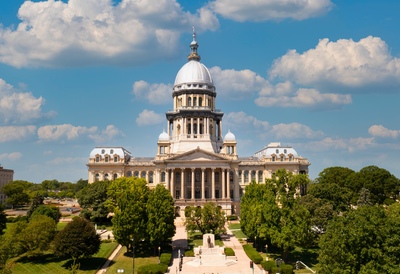-000055-400px.jpeg)
Tax & Budgets, Health Care & Wellness
Here’s How States Are Responding to Trump’s One Big Beautiful Bill Act
October 8, 2025 | Abbie Telgenhof, Morgan Scarboro
After months of work, two states have finalized their outstanding budgets. In the last few days, lawmakers in Connecticut and Pennsylvania have set out long-term revenue plans for their states. It was a lot of sturm und drang to get here, but the battle is over for these two states, at least for now. Oklahoma, unfortunately, is another story, so we'll cover its situation in a separate post.
Although it has not been officially enacted, there is every indication that Connecticut has brought its more than three-month budget stalemate to an end and, if some lawmakers are to be believed, heralded a new era of fiscal sustainability.
Late last month, Governor Dannel Malloy (D) vetoed the bipartisan budget bill that had shockingly passed the legislature two weeks earlier. Following this setback, legislators from both parties began talking behind closed doors in an attempt to work out a new solution to the budget impasse. Over the next several weeks, negotiators worked with little indications about what policies they were considering. Effectively locked out of these negotiations, the governor tried to weigh-in by offering up his own proposal, but the negotiators rejected it out of hand.
After missing one self-imposed budget deadline, the breakthrough finally came on October 18, when word began to spread that the parties had reached an agreement. Details were sketchy at first, but it was clear that the final budget would lack any of the big revenue changes that Democrats had been pursuing all year (such as hikes to the sales or income taxes). Indeed the only major tax changes included in the final bill (CT SB 1502) were new taxes on a range of tobacco products, expanded sales tax collection rules for internet sellers, and the long-agreed-upon hospital tax hike (rumors about a possible repeal of the car tax turned out to be unsubstantiated).
While it did not seek much in the way of new tax revenue, the bill included a number of proposals aimed at taming the state's recurring deficits. These include new limits on state borrowing, a 1 percent increase in teachers' contributions towards their pensions, and a requirement that the legislature approve any new public employee union contracts.
While he was concerned about some of the technical aspects of the new hospital tax language, Governor Malloy signed off on the budget proposal on October 31. He urged the legislature to reconvene to work on the issues, saying that, left unresolved, the error could put state taxpayers on the hook for hundreds of millions of dollars. Legislative analysts and industry stakeholders insist that the problem doesn't exist, but Speaker Aresimowicz (D) has expressed willingness to work with the governor to resolve any potential issues.
After lawmakers crossed the aisle to approve the GOP budget, they said that they thought things had to change because the state could no longer afford to continue with business as usual. Advocates for this compromise budget are saying that this is their plan's primary accomplishment. Time will tell.
-000055-400px.jpeg)
October 8, 2025 | Abbie Telgenhof, Morgan Scarboro

August 27, 2025 | Bill Kramer

August 5, 2025 | Morgan Scarboro